I guess a catch-up post is in order, and then I need to get back into proper posting. But, really, APRIL? How am I supposed to remember all I’ve read since April?
What with moving house and all, there’s been less time for reading than I could have wished, so there’s less to remember, but still.
Ah, well, let’s see:
Somewhere South of Here by William Kowalski, engaging, now bookcrossed.
Seventy-Seven Clocks by Christopher Fowler. Less funny than I had hoped, but still entertaining. Bookrcossing copy.
Theatre of Fish by Gimlette, found in my father’s colloection, an interesting account of Newfoundland, a place of which I knew very little, now I know a little more.
It’s a Long Way from Penny Apples, autobiography by Bill Cullen. An absorbing read. My two gripes were that though it’s supposed to be a memoir the author is referred to in third person throughout, which to me makes it more impersonal, and that in passages the sentences are waaaaay too short (unlike mine, as you can tell, I rather like run-on sentences). Now bookcrossed.
The Importance of Being Seven and The Double Comfort Safari Club by Alexander McCall Smith. Brilliant, as usual.
The Bronte Project by Jennifer Vandever. Picked up at a bookcrossing meetup in Mainz (of all places). Nice enough, but left me feeling a little, uhm, I don’t know, deflated perhaps?
Tonje Glimmerdal og Vaffelhjarte av Maria Parr. Disse fortjener egentlig egne innlegg, særlig Tonje Glimmerdal som muligens er den beste boka jeg har lest dette årtusenet, uavhengig av genre.
Peat Smoke and Spirit by Andrew Jefford, a reread in preparation for this summer’s trip to Islay.
Call the Midwife: A True Story of the East End in the 1950ies by Jennifer Worth. A very worthwhile read. I see it’s available from Amazon in a set with its two sequels, and I think I have to ordr it, because I do want to read the sequels.
Vidunderbarn av Roy Jacobsen. Vidunderlig, sår, ekte og gripende.
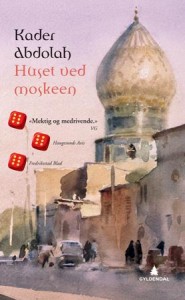
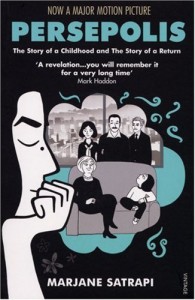
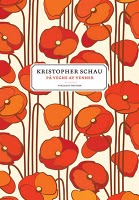
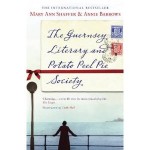
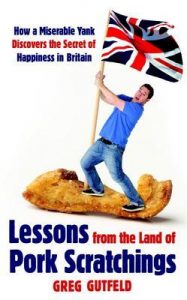 I bought Lessons from the Land of Pork Scratchings by Greg Gutfeld in London in July, partly because, well «A Miserable Yank Finds Happiness in the UK» appealed to me as an anglophile, partly because I like books about Britain, and partly because it says
I bought Lessons from the Land of Pork Scratchings by Greg Gutfeld in London in July, partly because, well «A Miserable Yank Finds Happiness in the UK» appealed to me as an anglophile, partly because I like books about Britain, and partly because it says